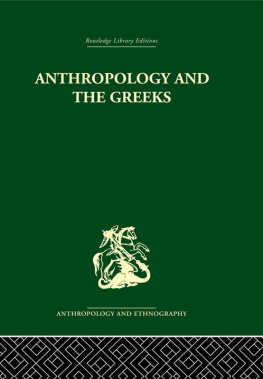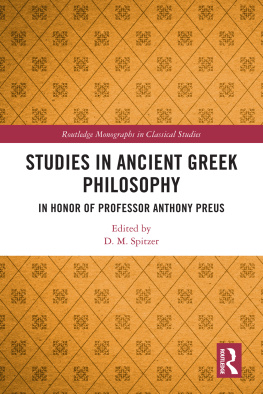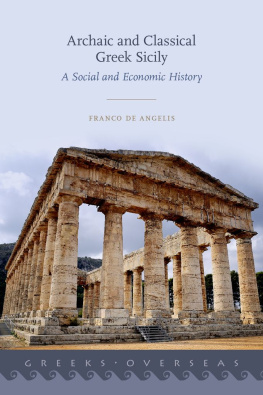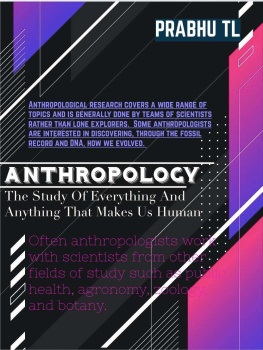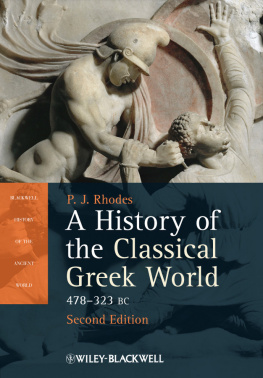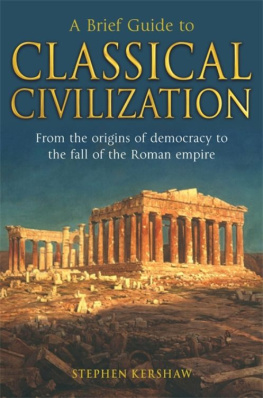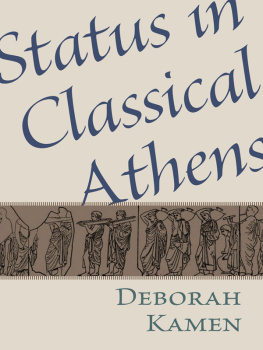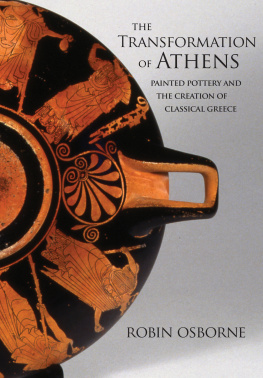Roufledge Library Editions
ANTHROPOLOGY AND THE GREEKS
ANTHROPOLOGY AND ETHNOGRAPHY
Routledge Library Editions
Anthropology and Ethnography
THEORY OF ANTHROPOLOGY
In 10 Volumes
| I | Political Systems and the Distribution of Power |
| Banton |
| II | Marxist Analyses and Social Anthropology | Bloch |
| III | Marxism and Anthropology | Bloch |
| IV | The Observation of Savage Peoples | Degrando |
| V | Primitive Law Past and Present | Diamond |
| VI | Anthropology and the Greeks | Humphreys |
| VII | Theory in Anthropology | Manners & Kaplan |
| VIII | The Theory of Social Structure | Nadel |
| IX | Readings in Early Anthropology | Slotkin |
| V | Classification and Human Evolution | Washburn |
ANTHROPOLOGY AND THE GREEKS
S C HUMPHREYS
First published in 1978
Reprinted in 2004 by
Routledge
2 Park Square, Milton Park, Abingdon, Oxon, OX14 4RN
Transferred to Digital Printing 2006
Routledge is an imprint of the Taylor & Francis Group
1978 S C Humphreys
All rights reserved. No part of this book may be reprinted or reproduced or utilized in any form or by any electronic, mechanical, or other means, now known or hereafter invented, including photocopying and recording, or in any information storage or retrieval system, without permission in writing from the publishers.
The publishers have made every effort to contact authors/copyright holders of the works reprinted in Routledge Library Editions Anthropology and Ethnography. This has not been possible in every case, however, and we would welcome correspondence from those individuals/companies we have been unable to trace.
These reprints are taken from original copies of each book. In many cases the condition of these originals is not perfect. The publisher has gone to great lengths to ensure the quality of these reprints, but wishes to point out that certain characteristics of the original copies will, of necessity, be apparent in reprints thereof.
British Library Cataloguing in Publication Data
A CIP catalogue record for this book is available from the British Library
Anthropology and the Greeks
ISBN 978-0-415-33064-0
Miniset: Theory of Anthropology
Series: Routledge Library Editions Anthropology and Ethnography
Printed and bound by CPI Antony Rowe, Eastbourne
Anthropology and the Greeks
S. C. Humphreys
Departments of Anthropology and History
University College London
Routledge & Kegan Paul
London, Boston, Melbourne and Henley
First published in 1978
by Routledge & Kegan Paul plc
39 Store Street,
London WC1E 7DD,
9, Park Street,
Boston, Mass. 02108, USA,
296, Beaconsfield Parade,
Middle Park, Melbourne
3206, Australia and
Broadway House, Newtown
Road, Henley-on-Thames,
Oxon. RG9 1EN
Set in 10 on 12pt Monotype Times by
Kelly & Wright, Bradford-on-Avon, Wiltshire
and printed in Great Britain by
Redwood Burn Ltd,
Trowbridge, Wiltshire
Reprinted and first
published as a
paperback in 1983
S. C. Humphreys 1978
No part of this book may be reproduced in
any form without permission from the
publisher, except for the quotation of brief
passages in criticism
British Library Cataloguing in Publication Data
Humphreys, S C
Anthropology and the Greeks. (International
library of anthropology).
1. Greece Antiquities 2. Anthropology
I. Title II. Series
301.29'38DF7877-30441
ISBN 0-7102-0016-1
To my parents
Contents
Grateful acknowledgment is made to the following for permission to reprint the articles included in this collection:
The Joint Association of Classical Teachers: Classics and anthropology, from Didaskalos, 4, 1974, pp. 42541.
Wesleyan University: History, economics, and anthropology: the work of Karl Polanyi from History and Theory, 8, 1969, pp. 165212; and, The work of Louis Gernet, ibid., 10, 1971, pp. 17296; Durkheim in 1972, ibid., 14, 1975, pp. 23342.
The editors of La Parola del Passato: Archaeology and the social and economic history of classical Greece, from fasc. CXVI, 1967, pp. 374400.
Messrs Duckworth & Co.: Town and country in ancient Greece, from Man, Settlement and Urbanism, ed. P. J. Ucko, R. Tringham, and G. W. Dimbleby, 1972, pp. 7638; and Evolution and history: approaches to the study of structural differentiation, from The Evolution of Social Systems, ed. J. Friedman and M. J. Rowlands, 1977.
The Scuola Normale Superiore di Pisa: Economy and society in classical Athens, from Annali, series II, 39, 1970, pp. 126; and The social structure of the ancient city, from Annali, series 111, 4, 1974, pp. 32967.
The American Academy of Arts and Sciences: Transcendence and intellectual roles: the ancient Greek case, from Daedalus, 104, 2, 1975, pp. 91118.
Apart from a few small changes made in the interests of clarity, I have not altered any of these articles. A minimum of additional bibliography has been appended in brackets and separate notes.
I am most grateful to Mrs P. Minney for help with the bibliography.
Down to the decline of Rome a custom was observed there [at Lake Nemi] which seems to transport us at once from civilisation to savagery. In the sacred grove there grew a certain tree round which at any time of the day, and probably far into the night, a grim figure might be seen to prowl. In his hand he carried a drawn sword, and he kept peering warily about him as if at any instant he expected to be set upon by an enemy. He was a priest and a murderer; and the man for whom he looked was sooner or later to murder him and hold the priesthood in his stead. Such was the rule of the sanctuary. Year in year out, in summer and winter, in fair weather and in foul, he had to keep his lonely watch. His eyes probably acquired that restless watchful look which, among the Esquimaux of Bering Strait, is said to betray infallibly the shedder of blood; for with that people revenge is a sacred duty, and the manslayer carries his life in his hand.
Frazer's Golden Bough (1911, pp. 89) illustrates admirably the dual attraction which anthropology holds out to the classical scholar, both as a stimulus to the historical imagination and as a theoretical framework for the interpretation of fragmentary data. Frazer fed his imagination eagerly both with the sight of ancient landscapes his description of Lake Nemi is that of an eye-witness-and with the work of folklorists and ethnographers. But his interpretation of the rules of the priesthood at Lake Nemi was for him the key to a general theory of the evolution of human thought, not merely a footnote to the history of Roman religion; and his whole theory and mode of argument depended on the evolutionist assumptions commonly held by the anthropologists of his day.
Next page
